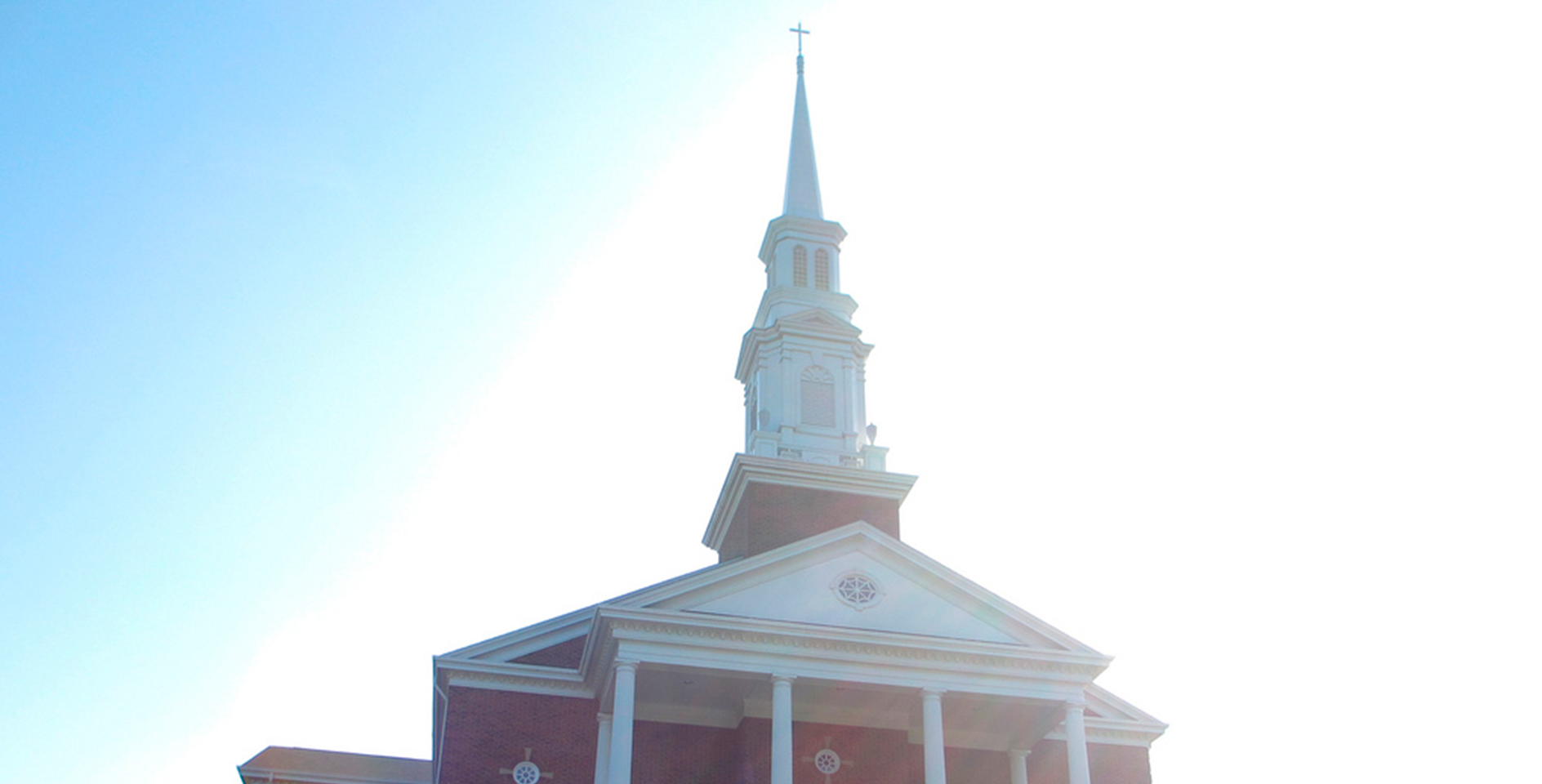"Freedom of conscience, unlimited freedom of mind,” said the American historian George Bancroft, “was from the first the trophy of the Baptists." Since the 1600s Baptists have been the forefront of defending religious freedom, not only for themselves and other Christians, but for Jews, Muslims, and other religions groups.
As a reminder of this rich heritage, here are 20 quotes from Baptists on religious liberty and freedom of conscience:
Baptist Faith and Message, Article XVII (1925, 1963, and 2000 versions)
God alone is Lord of the conscience, and He has left it free from the doctrines and commandments of men which are contrary to His Word or not contained in it. Church and state should be separate. The state owes to every church protection and full freedom in the pursuit of its spiritual ends. In providing for such freedom no ecclesiastical group or denomination should be favored by the state more than others. Civil government being ordained of God, it is the duty of Christians to render loyal obedience thereto in all things not contrary to the revealed will of God. The church should not resort to the civil power to carry on its work. The gospel of Christ contemplates spiritual means alone for the pursuit of its ends. The state has no right to impose penalties for religious opinions of any kind. The state has no right to impose taxes for the support of any form of religion. A free church in a free state is the Christian ideal, and this implies the right of free and unhindered access to God on the part of all men, and the right to form and propagate opinions in the sphere of religion without interference by the civil power.
Genesis 1:272:7Matthew 6:6-7,2416:2622:21John 8:36Acts 4:19-20Romans 6:1-213:1-7Galatians 5:1,13Philippians 3:201 Timothy 2:1-2James 4:121 Peter 2:12-173:11-174:12-19.
The Standard Confession (1660)
That it is the will, and mind of God (in these Gospel times) that all men should have the free liberty of their own Consciences in matters of Religion, or Worship, without the least oppression, or persecution, as simply upon that account; and that for any in Authority otherwise to act, we confidently believe is expresslly contrary to the mind of Christ, who requires that whatsoever men would that others should do unto them, they should even so do unto others, Mat. 7. 12. and that the Tares, and the Wheat should grow together in the field, (which is the world) until the harvest (which is the end of the world,) Mat. 13. 29, 30, 38, 39.
The Orthodox Creed (1679)
The Lord Jesus Christ, who is King of kings, and Lord of all by Purchase, and is Judg of Quick and Dead, is only Lord of Conscience; having a peculiar right so to be; He having died for that end, to take away the Guilt, and to destroy the filth of Sin; that keeps the Consciences of all Men in Thraldom, and bondage, till they are set free by his special Grace. And therefore he would not have the Consciences of Men in Bondage to, or imposed upon, by any Usurpation, Tyranny, or command whatsoever, contrary to his revealed Will in his Word, which is the only Rule he hath left, for the Consciences of all Men to be ruled, and regulated, and guided by, through the assistance of his Spirit. And therefore the obedience to any Command, or Decree, that is not revealed in, or consonant to his Word, in the holy Oracles of Scripture, is a betraying of the true Liberty of Conscience. And the requiring of an implicite Faith, and an absolute blind Obedience, destroys Liberty of Conscience, and Reason also, it being repugnant to both. And that no pretended good end whatsoever, by any Man, can make that Action, Obedience, or Practice, lawful and good, that is not grounded in, or upon the Authority of holy Scripture, or right Reason agreeable thereunto.
The London Baptist Confession (1689)
God alone is Lord of the conscience, and hath left it free from the doctrines and commandments of men which are in any thing contrary to his word, or not contained in it. So that to believe such doctrines, or obey such commands out of conscience, is to betray true liberty of conscience; and the requiring of an implicit faith, an absolute and blind obedience, is to destroy liberty of conscience and reason also. (James 4:12; Romans 14:4; Acts 4:19, 29; 1 Corinthians 7:23; Matthew 15:9; Colossians 2:20, 22, 23; 1 Corinthians 3:5; 2 Corinthians 1:24 )
Baptist World Alliance (1939)
Worthy religion rests on the conviction that the individual soul is competent to deal directly with God, and has the right and the need of this direct dealing. To deny any soul the full exercise of this privilege is to deprive the individual of his inherent and most sacred right, and to violate his dignity and worth as a human being. Every form of coercive restraint or constraint of a man in· his converse with God is both a sin against the individual and a hindrance to human welfare …. Voluntariness in personal and corporate worship, institution and service is essential to vital religion and to spiritual development of society.
Thomas Helwys (1611)
For men’s religion to God is between God and themselves. The king shall not answer for it. Neither may the king be judge between God and man. Let them be heretics, Turks, Jews or whatsoever it appertains not to the earthly power to punish them in the least measure. This is made evident by our lord the king by the scriptures.
Leonard Busher (1614)
No king nor bishop can, or is able to command faith; That is the gift of God, who worketh in us both the will and the deed of his own good pleasure.
John Murton (1620)
If you will take away this from God, what is it that is God's? Far be it from you to desire to sit in the consciences of men, to be lawgiver and judge therein. This is antichrist’s practice, persuading kings of the earth to give him their power to compel all hereunto: but whosoever submitteth, shall drink of God’s wrath.
Roger Williams (1644)
[A]n enforced uniformity of religion throughout a nation or civil state, confounds the civil and religious, denies the principles of Christianity and civility, and that Jesus Christ is come in the flesh.
John Spilsbury (1646)
I do believe the resurrection of the dead, that all shall rise and come to judgment, and every one give account of himself to God, and receive according to the things done in their bodies, whether they be good or bad; therefore no conscience ought to be forced in the matters of Religion, because no man can bear out another in his account to God, if in case he should cause him to sin.
John Clarke (1651)
I Testify that no such believer, or Servant of Christ Jesus hath any liberty, much less Authority, from his Lord, to smite his fellow servant, nor yet with outward force, or arme of flesh, to constrain, or restrain his Conscience, no nor yet his outward man for Conscience sake, or worship of his God, where injury is not offered to the person, name or estate of others, every man being such as shall appear before the judgment seat of Christ, and must give an account of himself to God, and therefore ought to be fully persuaded in his own mind, for what he undertakes, because he that doubteth is damned if he eat, and so also if he act, because he doth not eat or act in Faith, and what is not of Faith is Sin.
Isaac Backus (1773)
Religious matters are to be separated from the jurisdiction of the state, not because they are beneath the interests of the state but, quite to the contrary, because they are too high and holy and thus are beyond the competence of the state.
John Leland (1791)
Does a man upon entering into social compact surrender his conscience to that society to be controlled by the laws thereof, or can he in justice assist in making laws to bind his children’s consciences before they are born?” I judge not, for the following reasons:
1. Every man must give an account of himself to God, and therefore every man ought to be at liberty to serve God in that way that he can best reconcile it to his conscience. If government can answer for individuals at the day of judgment, let men be controlled by it in religious matters; otherwise let men be free.
Thomas Armitage (1890)
We may regret that all men are not Christians, and wish that they were, and we may wish that they held Christian principles as we hold them, but we have no right to enforce our doctrines by law, and others have no right to force their doctrines upon us by human statute. We hold that if a man chooses to be a Mohammedan, a Jew, a Pagan, a Roman Catholic, a Protestant or an Infidel, he has a right to be that, so far as the civil law is concerned. Therefore, all persecution for the maintenance of this or that religion is radically wrong.
George W. Truett (1920)
Baptists have one consistent record concerning liberty throughout all their long and eventful history. They have never been a party to oppression of conscience. They have forever been the unwavering champions of liberty, both religious and civil. Their contention now, is, and has been, and, please God, must ever be, that it is the natural and fundamental and indefeasible right of every human being to worship God or not, according to the dictates of his conscience, and, as long as he does not infringe upon the rights of others, he is to be held accountable alone to God for all religious beliefs and practices. Our contention is not for mere toleration, but for absolute liberty. There is a wide difference between toleration and liberty. Toleration implies that somebody falsely claims the right to tolerate. Toleration is a concession, while liberty is a right. Toleration is a matter of expediency, while liberty is a matter of principle. Toleration is a gift from God. It is the consistent and insistent contention of our Baptist people, always and everywhere, that religion must be forever voluntary and uncoerced, and that it is not the perogative of any power, whether civil or ecclesiastical, to compel men to conform to any religious creed or form of worship, or to pay taxes for the support of a religious organization to which they do not believe. God wants free worshipers and no other kind.
E. Y. Mullins (1923)
Religious liberty excludes the principle of toleration in religion. To put the power and prestige of the State behind one form of religion and merely tolerate others is not religious liberty. It is religious coercion. . . . Equal rights to all and special privileges to none is the true ideal
J. H. Rushbrooke (1923)
Quite as important as the relief work, scarcely less important than the preaching of the Gospel, and altogether in the line of our Baptist genius and history is the championship of freedom … I count this watching on behalf of soul-freedom well-nigh the most important and most honourable part of the duties laid upon me as your Commissioner.
Thomas Nettles (2002)
The Spirit's sword, not the magistrate's sword, makes Christians. A church constituted by those whose consciences have been either forced or bribed by carnal power is not a New Testament church.
Richard Land (2010)
To help preserve the First Amendment for all Americans, we have the right to the free exercise of our faith without the interference of the government. We agree with that as Baptists," Land said. "We believe that people have the freedom to worship and to express their faith and to have houses of worship in the places where they live.
Russell Moore (2016)
One thing we need to be very clear about is that religious liberty is not a government “benefit,” but a natural and inalienable right granted by God. At issue is whether or not the civil state has the power to zone mosques or Islamic cemeteries or synagogues or houses of worship of whatever kind out of existence because of what those groups believe. When someone makes such a claim, that person is not standing up for Jesus and his gospel, but standing against them. To empower the state to command or to forbid worship is not fidelity to the Bible.
When we say—as Baptists and many other Christians always have—that freedom of religion applies to all people, whether Christian or not, we are not suggesting that there are many paths to God, or that truth claims are relative. We are fighting for the opposite. We are saying that religion should be free from state control because we believe that every person must give an account before the Judgment Seat of Christ.










